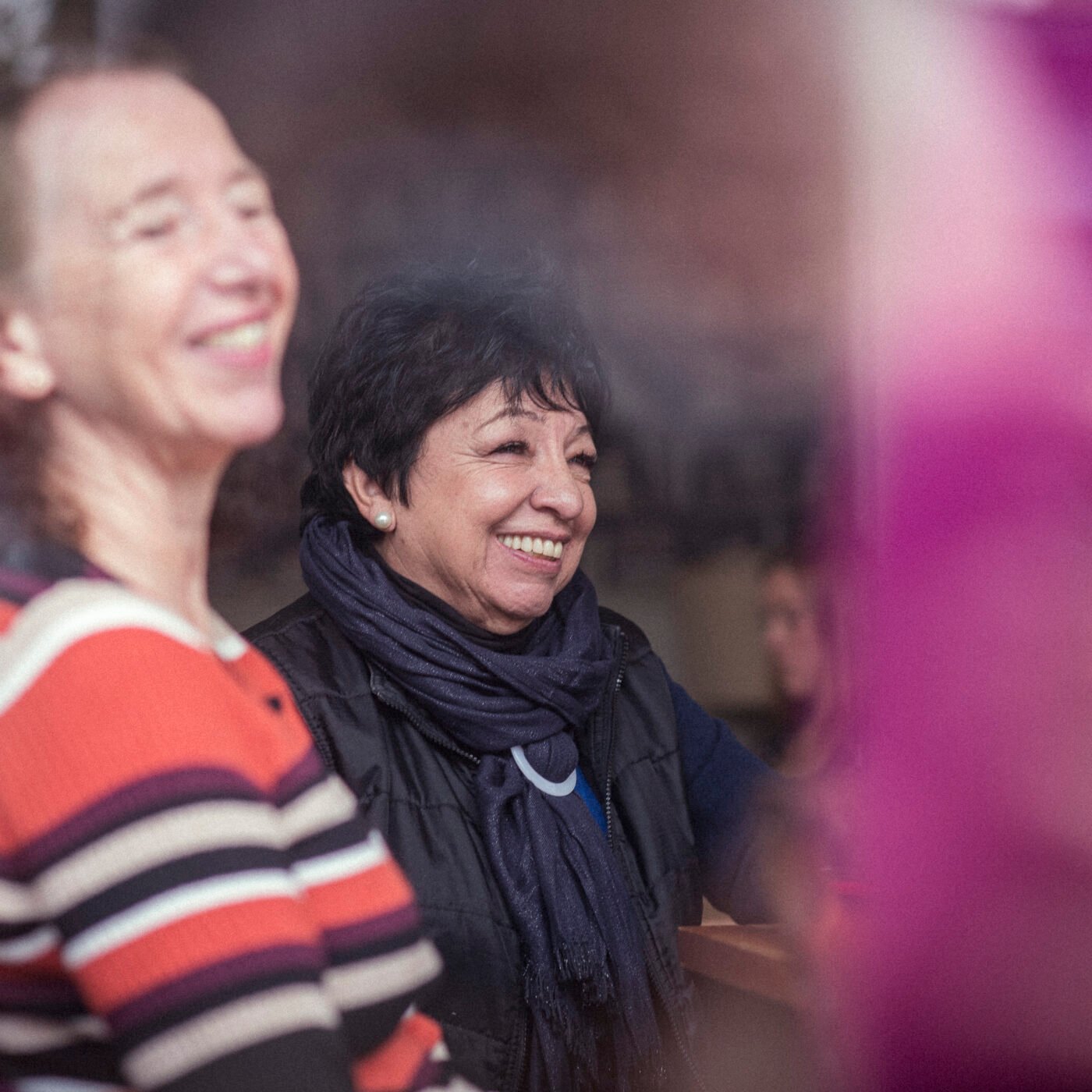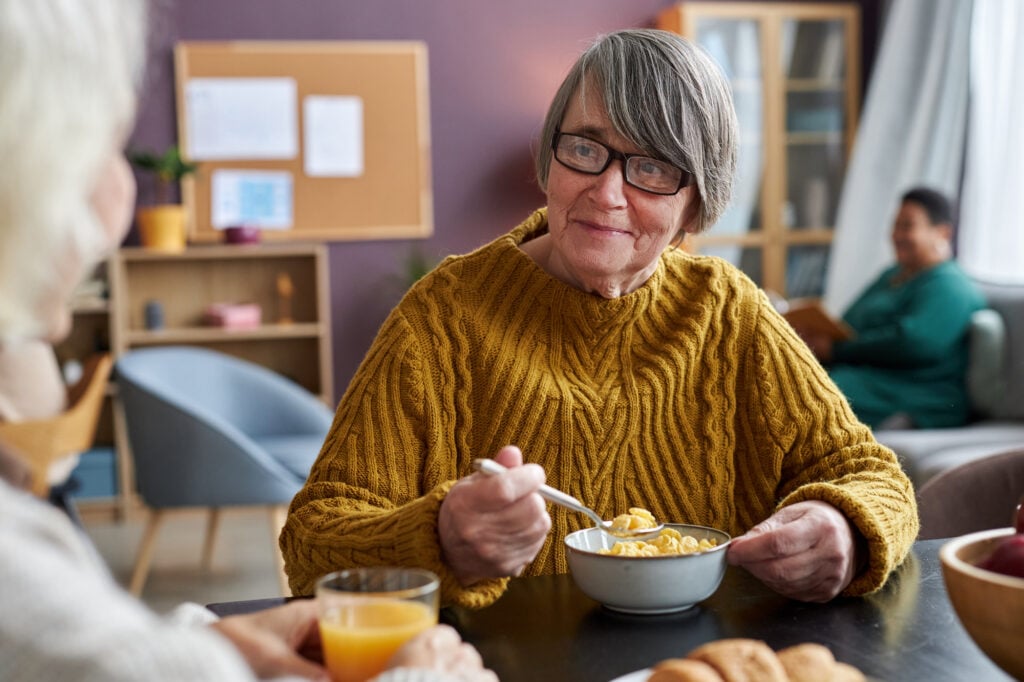What are dementia cafes?
Tags
Dementia Care
Whatever form of dementia someone may have, it can significantly impact both individuals living with the disease and their caregivers. This guide to Dementia cafes aims to help you find the right dementia-friendly services and support for you and or the person with dementia in your life.
What is a dementia cafe?
Dementia Cafés are a place for support and relaxation, they provide:
- An opportunity for socialising.
- An opportunity to acquire knowledge about dementia and local services.
- The chance to experience something different during each session.
Dementia cafes provide safe social spaces for those with dementia and their families.
What happens at a dementia cafe?
At a dementia cafe, you can discuss your dementia diagnosis or someone else’s and what it means for you and the future. Social care professionals and other health professionals also often attend, and they can provide you with answers and advice about dementia. There’ll also be other people you can make friends with who are currently, or have been in similar circumstances and learn from their experiences.
Dementia cafes provide a wide range of activities that benefit individuals living with dementia. Dementia cafes host activities that encourage self-expression, engagement, and emotional connections with others and spark positive memories. Typical activities at memory cafes include:
- Reading to help with cognition and evoke memories.
- Arts and crafts to allow expression, imagination and creativity.
- Gardening or other outdoor activities, depending on the location.
- Group activities to engage confidence and practice social connections.

What are the benefits of going to a dementia cafe?
Research from the Alzheimer’s Society found that 99% of those who attended dementia cafes have benefited from visits by accessing useful information – however, the cafes provide many other benefits:
Socialising
Research has demonstrated that engaging in conversation benefits brain health, especially for individuals with dementia and memory loss, as it promotes mental stimulation.
There are established strategies for communicating with individuals with dementia, and having knowledgeable professionals present who understand the importance of speaking slowly and using nonverbal cues can ensure that conversations are handled effectively.
Furthermore, socialising and social activities can alleviate depression and loneliness experienced by individuals with dementia and their caregivers.
Support and information
Experts often attend dementia cafes, providing valuable support and information to those affected by the condition, including an opportunity for carers to learn more about the condition. This support can include advice for those recently diagnosed, which can help reduce worry or let them know what to expect. Additionally, their experience can make people feel more at ease in a setting that may initially be unfamiliar.
This support can be extended to caregivers through expert advice or offering a sense of respite, knowing that others are there to assist them in providing care when needed.
Routine
Establishing a routine and promoting familiarity can be beneficial in reducing challenging behaviours often associated with Alzheimer’s, such as agitation and restlessness.
According to the Alzheimer’s Project, familiarity is essential when wanting people with dementia to engage in activities that promote calmness, comfort, and independence. Attending Dementia cafes, held on a regular basis, can introduce a sense of routine in people’s lives.
Can carers attend dementia cafes too?
Dementia cafes are for anyone affected by a dementia diagnosis, whether your friends, family, family carers or a professional carer to someone with dementia.
Dementia can be overwhelming at first, making it difficult to find reliable information. Memory cafes can provide a friendly environment for a carer to get help during the early stages by providing professional support and advice from skilled staff with expertise in dementia, guest speakers with similar experiences, or just talking to someone like you who is facing similar circumstances. Having someone to talk to can make a big difference to dementia carers and other people who have loved ones with dementia.
How do I find dementia cafes near me?
A dementia cafe may be located in your community centre or a church hall. However, to find a dementia café in your area, search “memory café near me” on Google to see available options. There is also a Memory Cafe directory where you can find the address and contact details of your local dementia cafes. Your GP practice may also be able to provide you with information on local cafes, groups, and other dementia services.
The Alzheimer’s Society operates dementia cafés nationwide and provides a helpful postcode function on their website to help you find the nearest memory café.
Read more about dementia

How to care for ageing parents living with dementia
How to Care for Ageing Parents With an increasingly ageing population, many of us will have to face questions regarding the care of our

What is a dementia clock?
What is a dementia clock? Over 850,000 people are living with dementia in the UK. While there is no known cure, people have found

Eight facts about lewy body dementia
Eight Facts about Lewy Body Dementia 1. It’s a fairly common type of dementia Over 100,000 people in the UK are affected by

How to care for someone with Lewy Body dementia
If your loved one has dementia with Lewy bodies, or as it’s sometimes known, Lewy body dementia, the more you understand about the condition,

Sudden worsening of dementia symptoms
Sudden worsening of dementia symptoms Whether you’ve been diagnosed with dementia yourself or are caring for someone who has, a sudden change in symptoms,

Dementia care – dealing with behavioural changes
People with dementia may begin to behave in ways that the people around them don’t understand, as the condition progresses. This can be upsetting